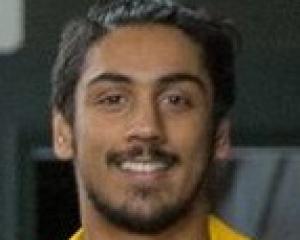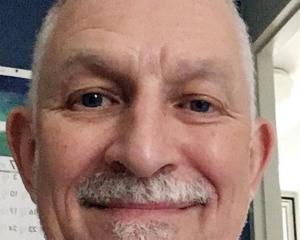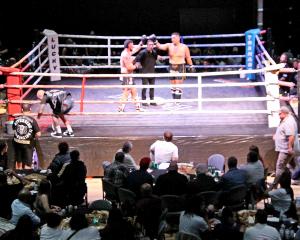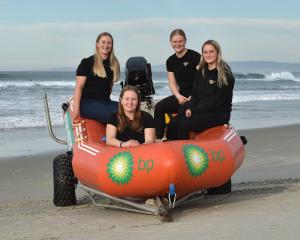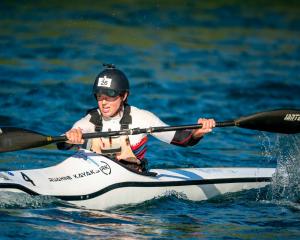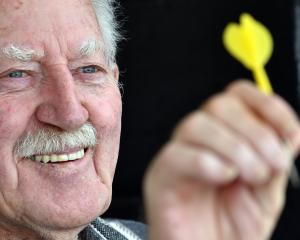The fourth biennial Winter Games start on the slopes of Central Otago on August 21. Otago Daily Times sports editor Hayden Meikle checks in with chief executive Arthur Klap to see how preparations are going.
Hayden Meikle: Hi Arthur, where are you?
Arthur Klap: I'm in Wanaka.
HM: The countdown is on, I guess.
AK: Yeah. The countdown is going a bit quick.
You plan for a long time but then you get a month out and you think, far out.
But we're in good shape.
HM: What's your background in wintersport?
AK: I was a professional freestyle skier.
Then I moved into the multisport environment - triathlon and off-road running.
But I stayed close to snow sports in the events side of things.
I've had my own event management company with my wife, Lynne, since 1987.
I think we've done 12 world championships and about 21 world cups across eight different sports.
HM: What were the early days of freeskiing like?
AK: I was there right at the start. It was very rough and ready.
It didn't have a lot of science behind it.
It was ground-breaking and limb-breaking.
I love the freeski and snowboard side but I enjoy curling, cross-country, alpine skiing - I just love it all.
HM: Anything on ice or snow?
AK: Yeah. Although when you get up and it's -7degC, you're not totally sure why you're doing it, ha ha.
HM: Where do the Winter Games rate in terms of global wintersport?
AK: In terms of the competitors, especially in snowboard and freestyle skiing, we're right at the very top echelon of events in the world.
We are a critical component for qualification for the Olympics.
We have four world cups this year in the Winter Games, and in each of those disciplines, there are only five world cups in the world.
That's why we get all the top athletes coming.
With alpine ski racing, we're the next layer down.
But we're still on the international calendar.
So, as a multi-wintersport event, we're confident we rate in the top five in the world.
HM: Are you trying to sell the event beyond the wintersport community? To Joe and Jane Bloggs who know Richie McCaw and Brendon McCullum but would struggle to identify a snowboarder?
AK: It's difficult, but that's a market we're trying to reach.
We want people to come to Queenstown or Wanaka or Naseby and be part of the Winter Games.
We have a whole festival component, downtown and up on the hill.
We've got a night dual slalom this year with lights and flares and fireworks and music.
You want to create a bit of a festive atmosphere.
You can see some spectacular skiing but also have a wine and listen to some good music.
HM: It still boils down to elite athletes, I suppose. Any big names confirmed yet?
AK: The hard thing with the Winter Games is that the athletes don't have to sign up until a week before we start.
We know that we've got Iouri Podladtchikov, the Olympic freeski halfpipe gold medallist.
By the time the Games start, we'll have most of the freeski and snowboard stars here, and one or two in the other disciplines.
There will be Japanese, Chinese, Canadian and US athletes arriving in the next couple of weeks.
HM: Wintersport athletes are different, aren't they? They seem to operate at a different pace to your rugby players or cricketers. How do you find them?
AK: They're very easy to deal with.
They don't have that attitude of, ''You're lucky to talk to me.''
The freestyle guys do have a laid-back approach but that is critical to their preparation for some of these moves they pull off.
They have to be totally focused on their skis and snowboards, but they need to sort of chill out or they will develop a level of tension that could be dangerous for them.
They can look as though they're not as serious or hard-working as a Richie McCaw, but they are.
They train long hours, they work hard and there is a high level of technical skill required.
They're as much an elite athlete as any other sport.
It's just that they present themselves a bit differently.
HM: What's your budget?
AK: Excluding GST, about $4.8 million.
It's a lot of money to raise. Because we're a charitable trust, all our festival events are free, and it's free to watch the skiing and snowboarding.
HM: Will you break even or make a small profit this year?
AK: We're on a tight line but I'm hopeful we might sit between a $50,000 and $100,000 surplus.
We need that to be able to carry on over the next year or so.
HM: The early Winter Games also had ice hockey and ice skating, in Dunedin. Any plans to bring those sports back?
AK: Within each sport, we want the ability to track six of the top 10 in the world.
We struggled to do that with figure skating, speed skating and ice hockey.
Continuing with sports that couldn't attract a high-quality field was actually detracting from the overall event.
We stayed with curling, focusing on the mixed pairs. And that was a good call because it is now in the Winter Olympics.
There will be really good curlers in Naseby this year.


